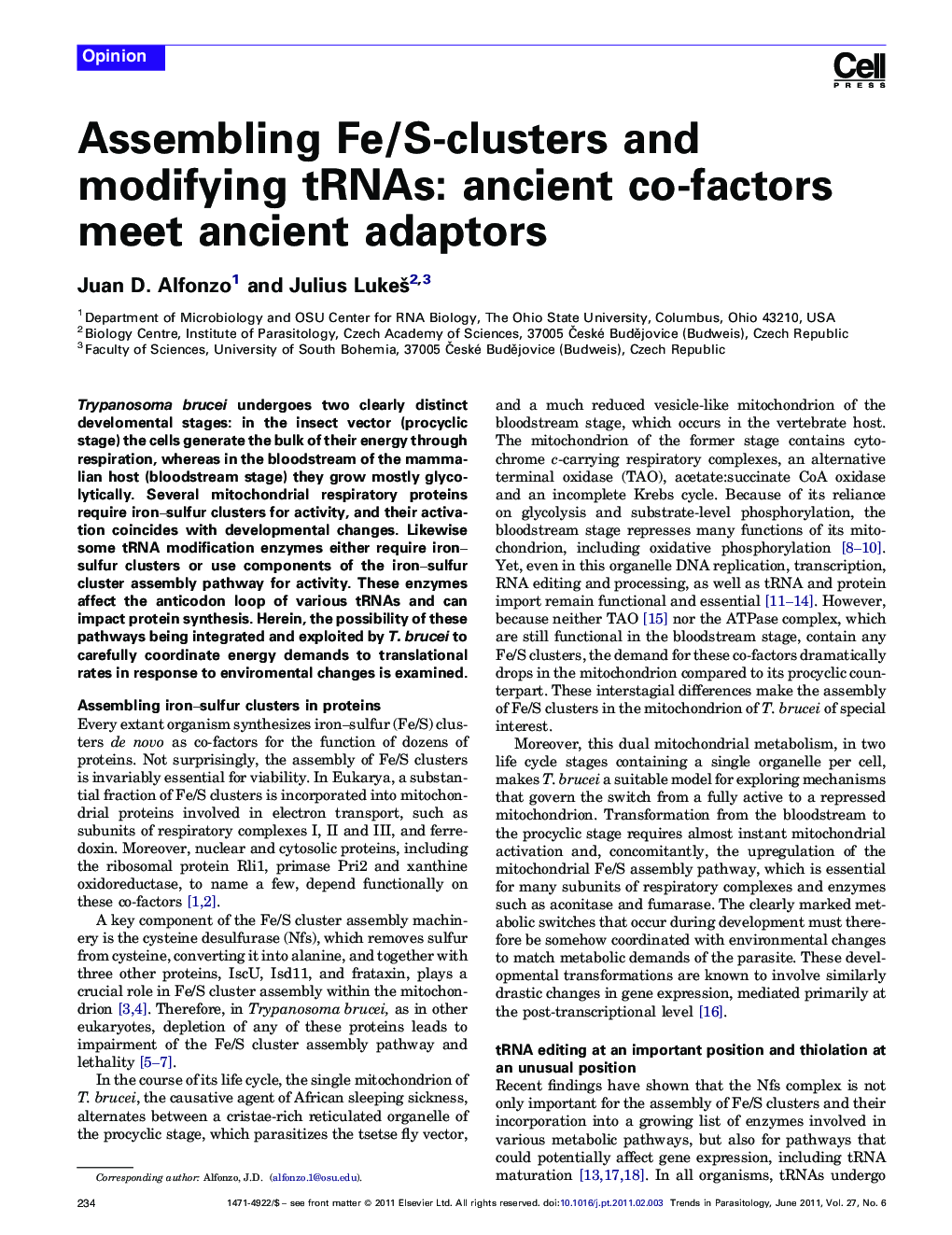| Article ID | Journal | Published Year | Pages | File Type |
|---|---|---|---|---|
| 3423636 | Trends in Parasitology | 2011 | 4 Pages |
Trypanosoma brucei undergoes two clearly distinct develomental stages: in the insect vector (procyclic stage) the cells generate the bulk of their energy through respiration, whereas in the bloodstream of the mammalian host (bloodstream stage) they grow mostly glycolytically. Several mitochondrial respiratory proteins require iron–sulfur clusters for activity, and their activation coincides with developmental changes. Likewise some tRNA modification enzymes either require iron–sulfur clusters or use components of the iron–sulfur cluster assembly pathway for activity. These enzymes affect the anticodon loop of various tRNAs and can impact protein synthesis. Herein, the possibility of these pathways being integrated and exploited by T. brucei to carefully coordinate energy demands to translational rates in response to enviromental changes is examined.
